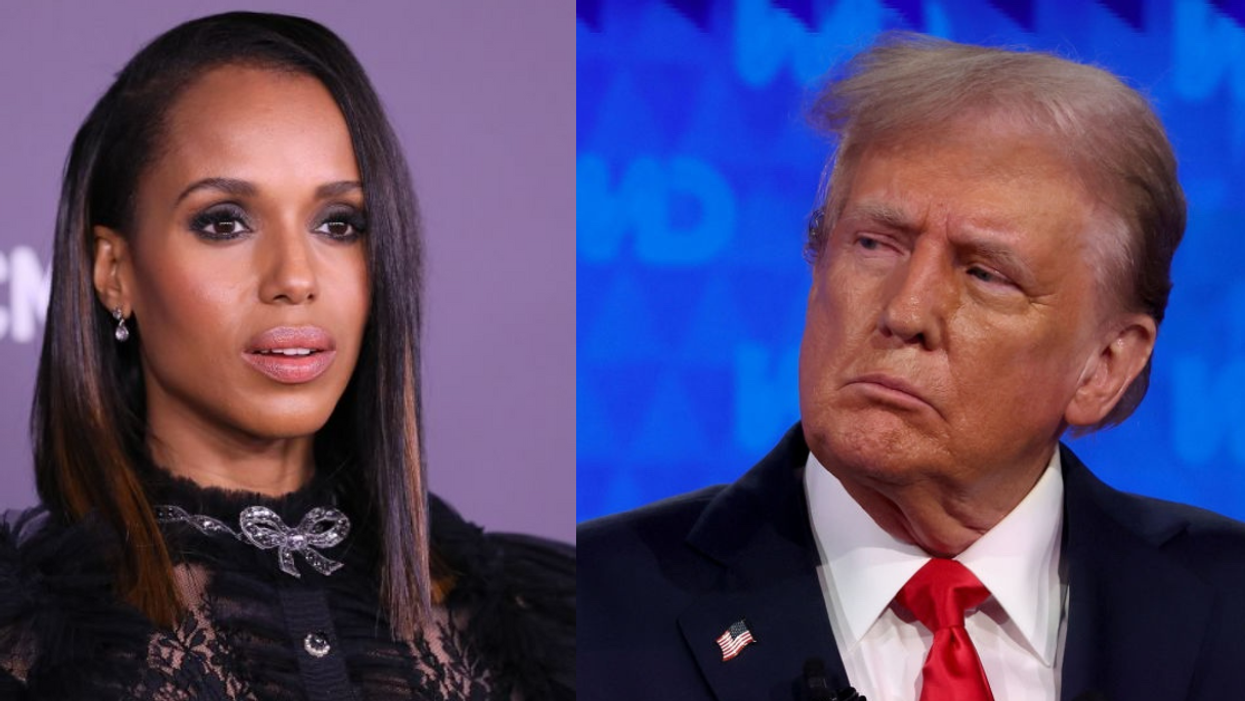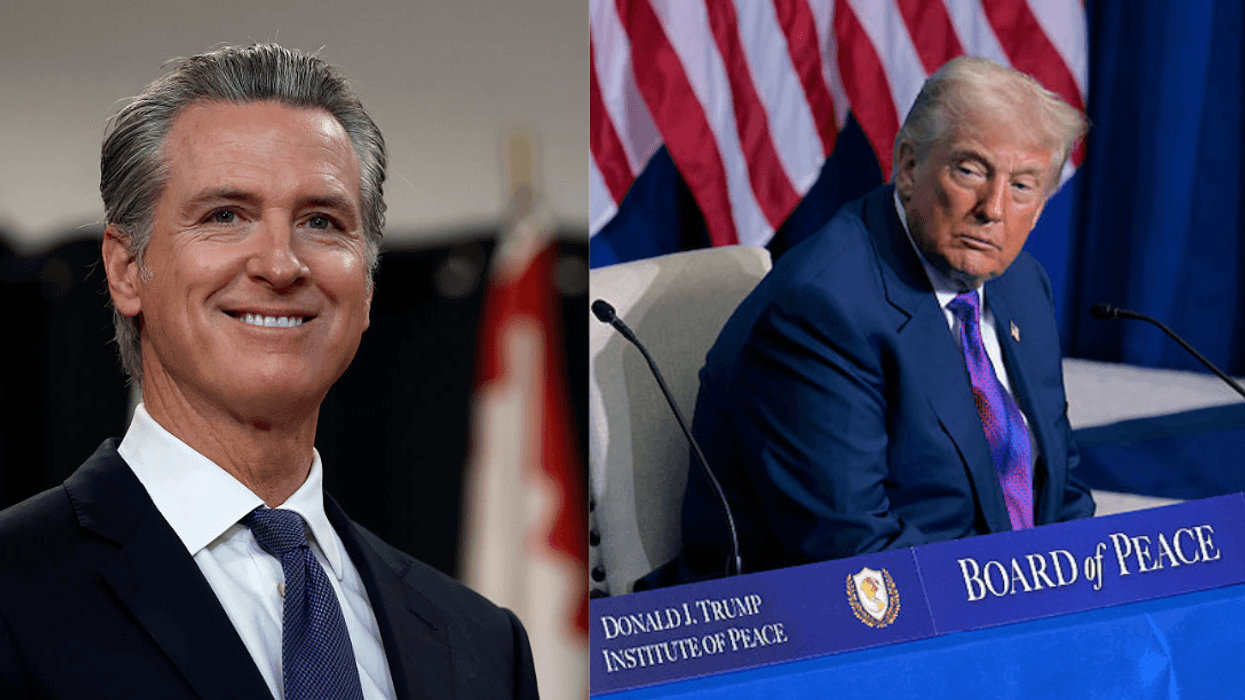Scandal star Kerry Washington remarked that if a convicted felon like former President Donald Trump is able to run for the highest office in the country, then other felons should have certain rights restored.
In May, Trump became the first former president to be convicted of felony crimes. The jury found him guilty on all 34 counts of falsifying business records to conceal hush money payments to porn star Stormy Daniels to illegally influence the 2016 election. His sentencing was set for July 11 but has now been delayed in the wake of a Supreme Court decision granting him sweeping immunity protections.
In a conversation with Bustle before the release of a new season of her show, UnPrisoned, Washington discussed how perceptions of felons might change now in light of the former president's conviction:
“Everything has changed in terms of how I feel about the so-called justice system."
"We’re in such an interesting moment when it comes to [the question of], ‘What is a felon?’ I love what people have been sharing on social media, [saying that] if a person who is a convicted felon can still run for president, then we should be removing that box from job applications.”
She emphasized that if a felon can run for president, they should also have the right to vote:
“That’s huge. Huge. The irony is that [Florida Republican Governor] Ron DeSantis has been trying to make it impossible in Trump’s home state. A bill was passed in Florida to allow formerly incarcerated folks to vote, and DeSantis has been trying to do everything he can to [undercut] that."
"Donald Trump may not be able to vote in his home state.”
Washington also explained that being labeled as a felon has become another way to categorize people, making assumptions about who they are and what they're capable of, similar to how society views gender or race. She also pointed out that when she starred in Scandal, it was the first time many viewers welcomed a Black woman into their homes so regularly.
She said:
“She was a real human being, beyond the label of ‘Black woman.’ [She had] complexity, nuance, flaws, brilliance. She was aspirational and also such a mess. Now we’re allowing for that kind of social, psychological deepening with felons and returning citizens, too.”
Many agreed.
Although Trump’s situation is unique, the complexity surrounding voting rights for convicted felons is not. Across the United States, state laws differ significantly regarding whether felons lose their voting rights and how they can regain them.
For instance, in Alabama, individuals convicted of “crimes of moral turpitude” lose their right to vote under the Alabama Constitution. A 2017 state law specified 46 acts that qualify as such crimes, ranging from murder to sexual abuse. Felons who have not been charged with treason or impeached can seek to have their voting rights restored by applying for a pardon from the Board of Pardons and Paroles.
In Iowa, voting rights are restored to convicted felons upon completion of their sentence, including all terms of supervised release, except for those convicted of homicide or related crimes.
In Louisiana, individuals convicted of election-related offenses lose their voting rights permanently. Other felons in the state are unable to vote while incarcerated but regain their voting rights five years after being released from prison or upon completing parole or probation, whichever occurs first.
In New York, felons cannot vote while incarcerated but regain their voting rights upon completing their sentence. However, these rights can be revoked if they violate parole conditions. Felons with prior convictions from other states can vote in New York as long as they are not currently imprisoned.
If Trump were incarcerated, he would lose his right to vote while imprisoned. Nevertheless, experts suggest that even if he is sentenced to jail or prison, he is unlikely to be incarcerated by this November due to the appeals process.








 The Benny Show
The Benny Show





 @neilforreal/Bluesky
@neilforreal/Bluesky @savannahcat/Bluesky
@savannahcat/Bluesky @qadishtujessica.inanna.app
@qadishtujessica.inanna.app @v-ron/Bluesky
@v-ron/Bluesky @nelnelnellie/Bluesky
@nelnelnellie/Bluesky @beatlenumber9/Bluesky
@beatlenumber9/Bluesky @pinkzombierose/Bluesky
@pinkzombierose/Bluesky
 @theunobsolete/TikTok
@theunobsolete/TikTok @theunobsolete/TikTok
@theunobsolete/TikTok @theunobsolete/TikTok
@theunobsolete/TikTok @theunobsolete/TikTok
@theunobsolete/TikTok @theunobsolete/TikTok
@theunobsolete/TikTok @theunobsolete/TikTok
@theunobsolete/TikTok @theunobsolete/TikTok
@theunobsolete/TikTok @theunobsolete/TikTok
@theunobsolete/TikTok @theunobsolete/TikTok
@theunobsolete/TikTok @theunobsolete/TikTok
@theunobsolete/TikTok @theunobsolete/TikTok
@theunobsolete/TikTok @theunobsolete/TikTok
@theunobsolete/TikTok @theunobsolete/TikTok
@theunobsolete/TikTok @theunobsolete/TikTok
@theunobsolete/TikTok @theunobsolete/TikTok
@theunobsolete/TikTok @theunobsolete/TikTok
@theunobsolete/TikTok @theunobsolete/TikTok
@theunobsolete/TikTok
 @laysuperstar/TikTok
@laysuperstar/TikTok @laysuperstar/TikTok
@laysuperstar/TikTok @laysuperstar/TikTok
@laysuperstar/TikTok @laysuperstar/TikTok
@laysuperstar/TikTok @laysuperstar/TikTok
@laysuperstar/TikTok @laysuperstar/TikTok
@laysuperstar/TikTok @laysuperstar/TikTok
@laysuperstar/TikTok @laysuperstar/TikTok
@laysuperstar/TikTok @laysuperstar/TikTok
@laysuperstar/TikTok @laysuperstar/TikTok
@laysuperstar/TikTok @laysuperstar/TikTok
@laysuperstar/TikTok @laysuperstar/TikTok
@laysuperstar/TikTok @laysuperstar/TikTok
@laysuperstar/TikTok @laysuperstar/TikTok
@laysuperstar/TikTok @laysuperstar/TikTok
@laysuperstar/TikTok